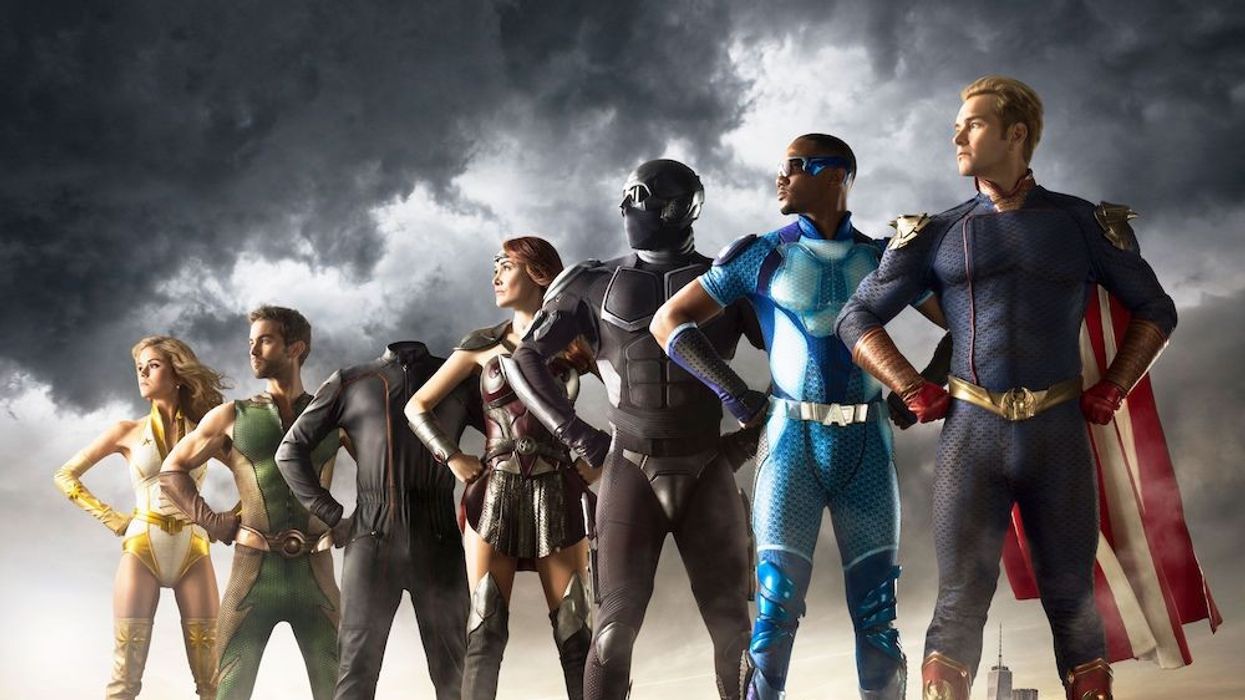Who Are R-Rated Superhero Movies and TV Shows For?
Comics have always had the primary goal of entertaining children. How many more of these ideas can entertain adults?

"Hot Takes" could be the name of a superhero in the Tick universe. In our world, it's something people say to get a rise out of other people. When I began writing this article, I wanted to make sure it wasn't a hot take.
See, I watched this excellent video from Patrick (H) Willems that dug into the essence of R-rated superhero movies and TV shows, and I thought it was worth a discussion here.
These forms of entertainment originated in newspapers as a way to entertain kids. And while there were always people subverting the medium to talk about deeper and darker things, the majority of the money made turning comics into movies has been from PG/PG-13 audiences.
While shows like Watchmen and movies like Deadpool subvert the childish themes to talk about something deeper, and sometimes to make us laugh, there's a real question about who these shows are for.
Grown-up comic lovers looking to be engaged in a familiar manner?
New audiences looking for an easy way into science fiction?
Watch the video, and let's talk after the jump.
Who Are R-Rated Superhero Movies and TV Shows For?
First off, this was such an informative take on comics, their evolution through entertainment, and how they've become the biggest box office draw. I think it's clear that between Marvel and DC, comics are king at the box office.
Despite DC's "adult themes," they still release a majority of PG-13 films (more on Joker later). These are movies where Superman can die... but only if he comes back from the dead later for both audience satisfaction and marketing purposes.
Marvel is no different. Avengers: Endgame did not have real death. At the end, the only people who passed on wanted to leave the film franchise or had TV deals to play the same characters and wanted some space.
Unlike Marvel, DC has been experimenting with the R-rating. Joker was a humungous success for them, and so was Harley Quinn and Suicide Squad, from at least a box office standpoint. They also have adult animation series, which live on the HBO Max hub and gather a lot of viewers.
Disney's recent acquisition of Fox means that films like Logan, Deadpool, and their pending sequels are in the mix for Marvel's first foray into adult themes. But this is new territory, and the house of mouse is not known for wanting to market to adults.

Time will tell if these movies come out, and whether or not they keep their ratings. For now, Disney says they will.
When comic book films and TV shows decide to go dark, they shut off one audience but can find another. That's the delicate dance inside Hollywood—how can you find crossover people to watch your material without changing it so much that it does not appeal to people who want that specific genre?
While movies like Deadpool can do box office bonanzas, there are things like Sin City 2 that flop. Sure, quality comes into play, but the real question is... will these audiences stick around forever?
The general consensus is that superheroes are a fad, not a mainstay. While these R-rated stories are popular now, they won't be once the saturated market moves into something else. Also, the hero medium is inherently goofy and silly. It has special powers and a flair for the melodramatic.
How many new R-rated ideas are left to explore?
We've seen satires of the American media machine and industry, like in The Boys, and we've seen a dissection of history and race, like in Watchmen. We've also seen the dissection of history and race in Black Panther, and satires of American exceptionalism in DC's treatment of Superman.
Sure, themes can be executed in many ways, but what ways are left?
The genuine concern expressed in the video is whether or not there will be an audience if the stories keep being repetitive.
So I'd like to pose this question to the forum of the comments... where are these movie and TV shows going? Is this a fad about to end, or do you still think there's a lot to say within these worlds?
Can a genre keep creating, or are there times when it is creatively tapped out?
Tell me what you think.
Source: Patrick (H) Willems













